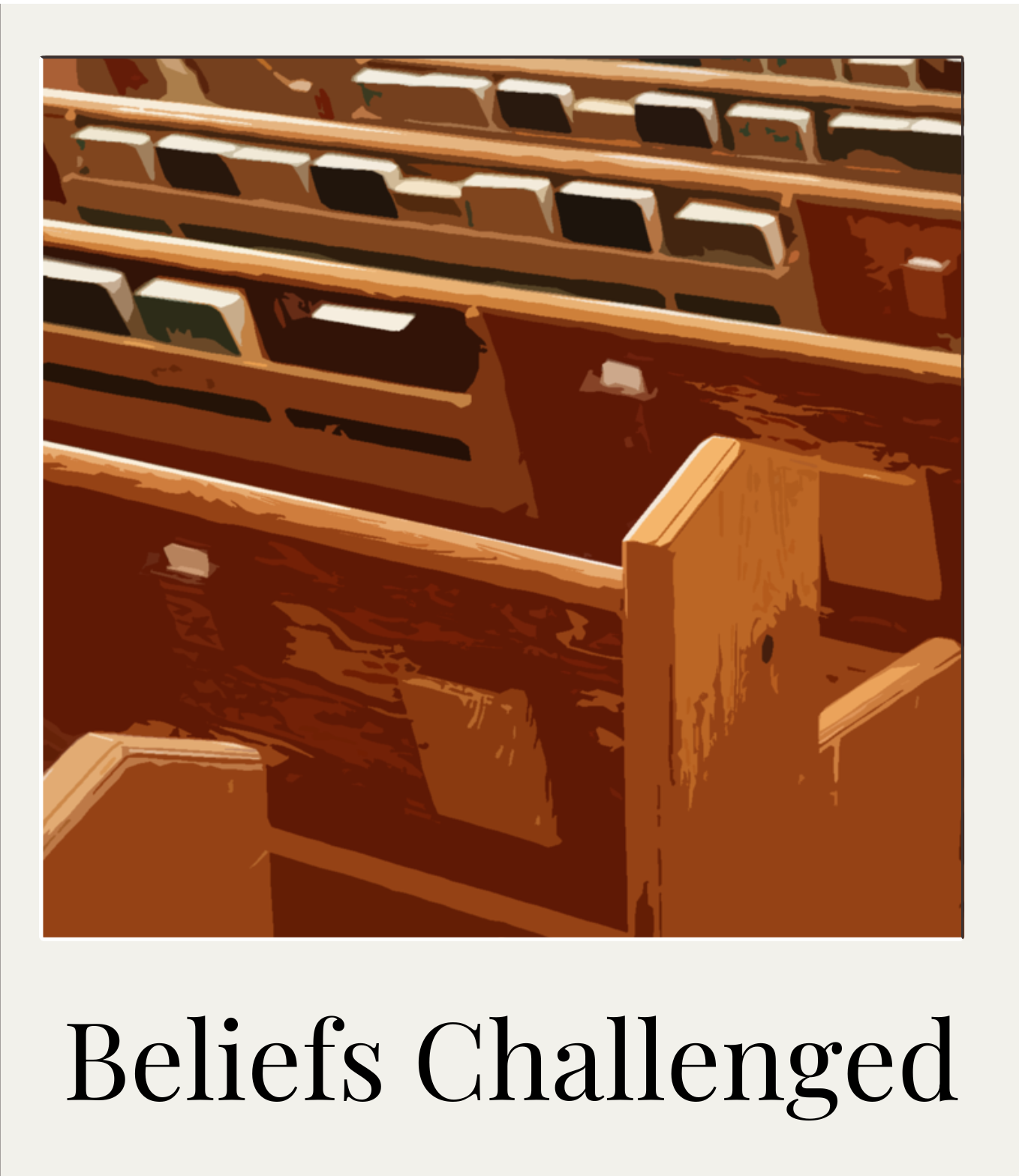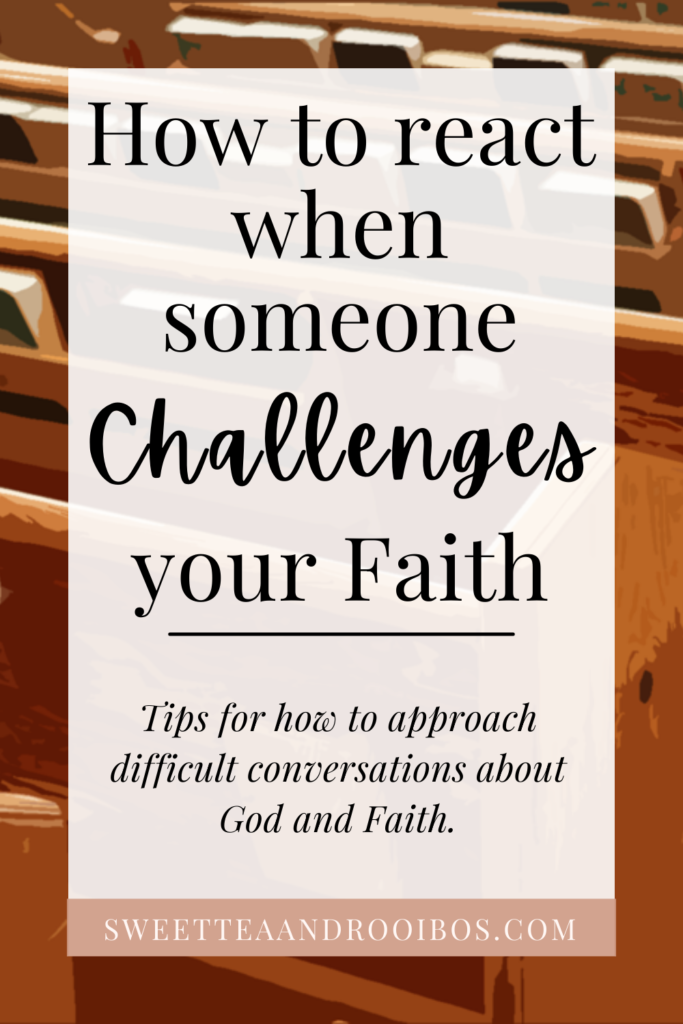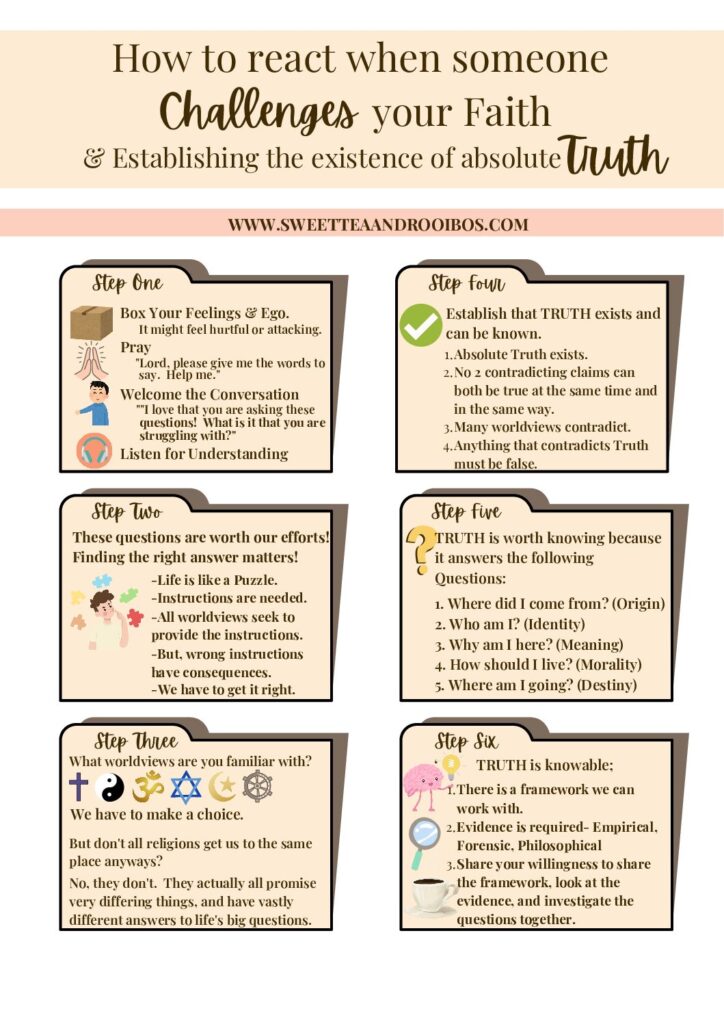
If you’ve read my testimony, you’ll know that I grew up, the eldest of 5 children, in a loving Christian home. Since I had accepted Jesus as my Savior, I naturally assumed that, in due time, all of my siblings would as well.
Somewhere in early adulthood, my brother started questioning everything. He married, and together he and his wife began exploring different paths. At first, these were just differing denominations, but slowly it diverged into paths taking them further and further away from traditional Christianity. We found ourselves seeing them less and less. Over the years, they became discouraged and disillusioned. In whatever ways it all came together, or didn’t, we eventually received a devastating letter. In it, my brother explained to us that he no longer believed in the Christian “story.” One line stuck with me, like a thorn in the flesh, “If you all want to continue to live in ignorance, I can’t stop you, but I can’t do it anymore.”
I was devastated, insulted, and angry. I tried writing him back. “The Bible says…,” I would begin. But he already knew all about what the Bible says. The problem was that he didn’t believe the Bible was God’s Word, or that it was Truth. Not anymore. “Maybe truth was just a concept…,” he said. We tried talking once or twice… but I couldn’t make sense of it. He already knew all of my arguments, but I had no idea where he was coming from or where to meet him on common ground. And he knew this. I knew he was looking down on me, considering my lack of ability to converse with him to be due to my ignorance. He wasn’t entirely wrong… it WAS due to my ignorance. But it was not due to the ignorance of my Faith, it was my ignorance regarding worldview, and how to communicate with people when we do not share a common foundation.
My beliefs weren’t just being questioned; they were being attacked. Not only were all attempts at a defense falling short, but it was so emotional. I couldn’t convince him. I couldn’t “save” him. And if I didn’t change tactics, I was going to lose him relationally as well.
We decided upon a somewhat uneasy truce. For the sake of the relationship, we just focused on safe topics that stayed far away from religion. I started praying. It’s always been God who has the power to bring people to salvation. It was never about me. But what I DID learn, was that “being ready to give an answer for the Faith I have in Christ Jesus” suddenly meant more to me than just giving my personal testimony. How do I explain that “not all roads lead to heaven?” Why don’t they? In a culture quick to say “that’s your truth” or “that’s my truth…” What does truth even mean? Why does the Truth of Christianity supersede any other truth-claim?
Over the years, I’ve learned a lot. I’m a lot less fearful of conversations with people who believe differently than I do. Previously, the fear of not knowing the answer, looking foolish, and thereby making my Faith look foolish, made me feel defensive. I didn’t want to poorly represent my Savior or Christianity. But now… now I feel much more comfortable with not having all the answers, because I’ve become equipped with better questions. The fact is, people don’t need to hear what I believe as much as they need to figure out what they believe. They need to internalize Truth, and they will only do that when they begin to internalize the questions, and wrestle with the answers.
Someday, I hope to see my brother come to Faith in Christ. I so long to share with him how his journey, away from the Faith, led me on a journey that has deepened my understanding, belief, and confidence in a way that nothing else may have done. My love for my brother, led me on a mission of desperation, that resulted in a much more confident Faith, one that I am better equipped to share and defend. May God work all of this together for good, for His glory.
Here are some lessons I’ve learned for “How to react when someone challenges your Faith.”
- This conversation is bigger than you. You may feel strong emotions, like you are being attacked and feel defensive. That’s normal. But you’ll need to put those feelings in a box and put a lid on it for a minute. You can deal with those feelings later. Right now, this person is choosing to talk to you. They may have had difficulty even bringing up the topic. How you respond may have a huge impact on whether or not you will be included in any future conversations. Welcome the discussion. “Thank you for trusting me with this. These aren’t always easy conversations to have. I may not have all the answers you are looking for, but let’s chat.” (Dear brother, I’m so sorry I fell short here.)
- Good questions can buy you time to think and process. Use this time to pray and seek God’s guidance. Most conversations about Faith are not “one and done.” This is just one of many conversations this person will likely have. The outcome is not up to you, based on what you say, or don’t say. You are not responsible for convincing this person. God will do the heavy lifting. So, put your performance anxiety in another box, put a lid on it, and instead, pray. LISTEN for understanding, not just to prepare for your next comment. (Dear brother, I’m so sorry I made it about me.)
I have found these basic tools to be helpful in figuring out WHERE a person is in their quest for Truth. Wherever possible, guide the conversation with questions. Your goal is to understand where they are, and to provide a logical framework for discussion.
Life is like a puzzle. We are surrounded by all these pieces, but we need instructions to make sense of it all… to see the bigger picture and understand how it all fits together. We NEED to fit it together, in order to answer life’s big questions;
There are 5 main questions that everyone must answer.
- Where did I come from? (Origin)
- Who am I? (Identity)
- Why am I here? (Meaning)
- How should I live? (Morality)
- Where am I going? (Destiny)
Every worldview seeks to answer these questions, but before we can look at how they do so, we need to answer TWO crucial questions:
- Don’t all religions get us to the same place anyway?
Actually, No. And they TELL you this. Some say there is no destination, we just die. Some say we live on repeat through reincarnation, others say there is an afterlife, but have differing instructions on how to get there. People who claim that “all roads lead to Heaven” are stating this contrary to what the various worldviews and religions themselves teach. So, when you choose your worldview, you need to understand the destination that path is promising. They aren’t all selling the same trip. We need to investigate. If we are going to base our origin, identity, meaning, morality, and destiny on a certain worldview’s teachings, we need to know that that worldview is Truth.
- “Is there such a thing as Absolute Truth?”
In a culture so quick to share “my truth” or respect “your truth,” accepting that there is an “absolute truth” that exists outside of you, me, or our personal experiences can feel counter-intuitive.
If you say, “There is absolutely no such thing as absolute truth.” You are actually making an “absolute truth” statement yourself. You’ve just committed a logical fallacy.
Additionally, two truth-statements, with opposite truth values, cannot both be true in the same way and at the same time. Truth must exist within a logical framework. This is the Law of Non-Contradiction.
Using a day-to-day example, if my best friend’s “truth” is that she is fat, yet all the medical professionals say she has anorexia and will die soon, as her friend, do you work to convince her to align herself with the absolute truth that exists outside of her thoughts and feelings, or do you respect her “truth” and watch her die? Do you suggest that both “truths” are true? No. The result would be the same.
To your friend; “Ideas have consequences. To begin our search honestly, we must recognize that “something” is absolutely true, and we are on a quest to find it, so then we must do so with logical integrity. There is a framework for these questions, which I’m happy to share with you. If you’d like to chat more, I’m happy to look at those questions with you.”
My goal for that first conversation would be:
- To pray, put my own feelings in that box, and surrender the conversation to the Holy Spirit’s guidance.
- To understand where that person’s questions are stemming from. Often, they are dealing with more doubts than answers.
- To determine if they believe in, or are willing to recognize, Absolute Truth.
- To leave the conversation on a positive note, in the hopes that there will be an open door to future conversations. If you feel led, invite them to coffee, schedule a date, and offer to continue the conversation.
This is only a guideline for a starting conversation, but I truly hope it’s the first of many, as we confidently share the great hope that we have in Christ Jesus. There ARE answers to ALL of life’s questions, and if you seek that TRUTH, you will find Him, when you seek Him with all of your heart.
If this is something you would like to study in greater detail, I highly recommend the book, “I Don’t Have Enough Faith to be an Atheist.” It is an excellent apologetics resource!

